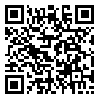Volume 9, Issue 31 (3-2003)
RJMS 2003, 9(31): 567-572 |
Back to browse issues page
Download citation:
BibTeX | RIS | EndNote | Medlars | ProCite | Reference Manager | RefWorks
Send citation to:



BibTeX | RIS | EndNote | Medlars | ProCite | Reference Manager | RefWorks
Send citation to:
Farahini H, Emami Mahtaj H, Ebrahimi Takamjani E, Akaberi F, Goharpay S. COMPARISON OF THE EFFECTS OF FORWARD RUNNING PLUS WOBBLE BOARD TRAING, BACKWARD RUNNING PLUS WOBBLE BOARD TRAINING, AND WOBBLE BOARD TRAINING ALONE ON STATIC BALANCE OF SUBJECTS WITH STAGE 1, 2 ANKLE SPRAIN.. RJMS 2003; 9 (31) :567-572
URL: http://rjms.iums.ac.ir/article-1-682-en.html
URL: http://rjms.iums.ac.ir/article-1-682-en.html
Abstract: (11241 Views)
This research was conducted to examine the effect of adding forward and backward running in a wobble training program on some of functional static balance tests. In this research 30 young male(15-35 years) with sprain of lateral ligaments (grade I,II) of ankle joint were selected by non-probability sampling and assigned randomly into three groups: Group 1 included 10 subjects that performed 15 minutes forward running training and then 15 minutes wobble board training. Group 2 included 10 subject that performed 15 minutes backward running training and then 15 minutes wobble board training. Group 3 included 10 subjects that performed just 15 minutes wobble board training. The functional static balance tests included the most possible time of standing on the injured leg in the straight posture on the surface by eye open(A), and eyes closed (B) and non-injured leg in the straight posture on surface by eyes open and eyes closed. The testing period lasted 6 weeks with 3 sessions per week. Measurments were taken at the beginning and every two weeks hence forward at 4 stages. At the end of 6 th week, the difference between 3 groups (A) statistically was not significant but there was significant difference of mean data between 2 and 4 weekstraining in 3 group (B). That is, backward running for 4 weeks has a good effect on the static balance by wobble board training.
Type of Study: Research |
Subject:
Physiotherapy





